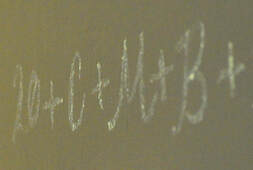For the record, our “Stephen” will be wearing a helmet, and our stones will be wads of paper. And it should be mentioned that I have two older brothers, and in my adulthood, I have learned to appreciate them. I also employ the technique of reminding Stephen of some of the shenanigans that went on in my childhood when we are out and the bill is being brought to the table.
Paul Pyrkosz


 RSS Feed
RSS Feed
